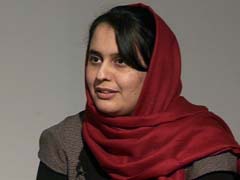The Afghan lawyer talks about public space in Afghanistan and how this has changed since the outbreak of war in 2001.
Shared Spaces recorded an interview with Sajia Begham in January 2013 when this lawyer and researcher visited the Centre of Contemporary Culture of Barcelona (CCCB) to give a lecture titled “The Women’s Rights Legacy”, as part of the lecture series, “The Legacy of the International Community in Afghanistan”.
Begham says, “Since the war, people have been going out less” and prefer to work at home because of fear of violence, which remains latent. Government employees and police are still patrolling certain areas, such as parks and gardens, in order to guarantee some public spaces that are free of terror.
However, Sajia Begham also stresses that, unlike the years of the Taliban regime, “when public space was proscribed and citizens were not permitted to engage in discussion or express themselves in gatherings”, people can now move around and speak freely. In the case of women, there are still customs and places specifically reserved for them and their degree of freedom differs from one city to another. In some places they are totally free, while in others they are always mocked if they try to exercise their freedom.



